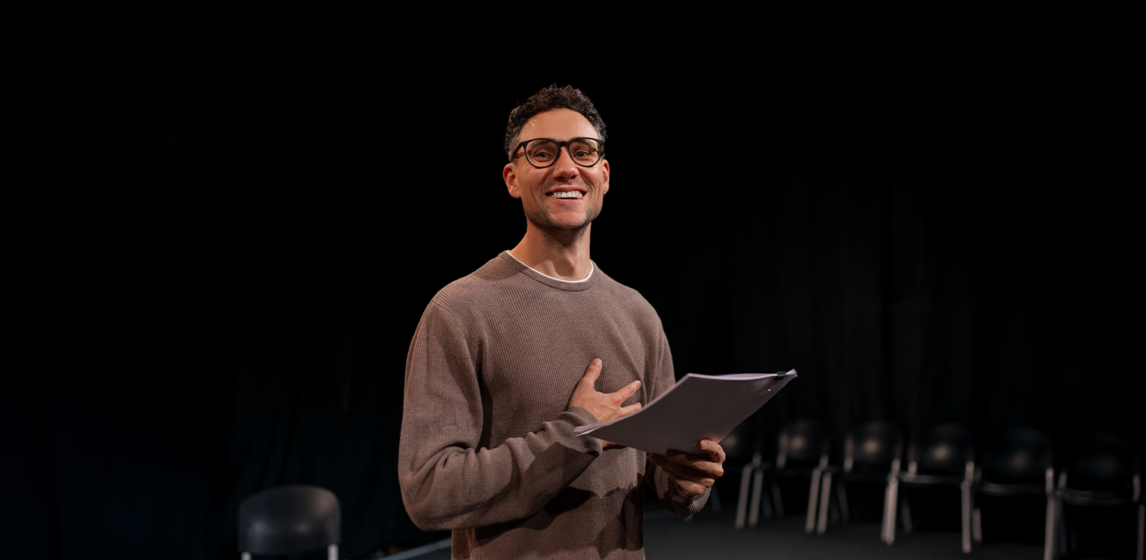This week I met a mom who shared the following story:
“The other day my six-year-old was working on a Bible coloring page from church, and she looked up at me and said, ‘Is this stuff actually true, Mom? Like, did these stories really happen, or are they all just made up?’
“Stunned, I replied, ‘Well … what do you think about that?’
“Without a beat, my daughter offered, ‘If it’s not real, a whole lot of people are lying.’”
Maybe you’ve had a curious six-year-old like this in your own home. Or maybe your trusting six-year-old has evolved into an angsty sixteen-year-old who flat-out retorts to your best attempts at Jesus-talk.
Either way, kids’ questions can be hard. They reveal a common insecurity I’ve found among parents: Most parents think they’re unqualified to answer their kids’ questions about God, the Bible, and faith. I often feel that way, and I bet you do, too.
And you know what? We’re right.
Every parent struggles with answering tough questions.
My wife and I both have advanced theological degrees and over twenty years of ministry experience, and we still don’t know how to answer some of our own kids’ questions about faith.
Why?
Because they nearly always come when we least expect them.
Because they’re so dang honest. Because they’re usually the questions we’ve struggled with ourselves.
Because they drum up fears that we are messing our kids up.
Because our own Bible knowledge never seems good enough (or our memories don’t stretch well enough back to the Bible study where we learned the answer).
And ultimately, because God is so much bigger than our understanding or ability to articulate.
If you’re a parent, you can probably resonate with the discomfort—or flat-out terror—of saying the wrong thing, misrepresenting God, screwing up the Bible verse, or spouting poor theology to your kids. If that’s you, welcome to the club!
Not having an immediate answer doesn't mean not having a conversation
There’s good news for those of us who feel inept at responding to our kids’ questions about faith. When faced with tough, real (and real tough) questions, we don’t have to know all the answers—and even if we know them, it’s not always best that we come right out and say them. Here’s why.
Young people need caring adults who listen to and validate their questions and struggles rather than shutting them down. They need adults who will enter with them into gray spaces of life and faith, rather than whitewashing the walls of doubt with bleached certainty. Even if our own assurance of faith is real, it doesn’t mean we can gift that assurance to our kids. Shutting down their questions with canned answers can actually short-circuit the important journey through doubt to a faith of their own.
With that journey in mind, here are the four words every parent can keep handy in their back pocket for moments like these:
“I don’t know, but …”
These are four golden words precisely because they open up a conversation rather than closing it off. There are a handful of potential ways to complete that sentence.
I don’t know, but …
… that's an important question.
… let’s find out.
… I wonder that, too.
… I bet you’re not the first person to ask that.
… who do you think we could ask about that?
… let me tell you what I've experienced of God.
… I wonder what stirred up that question just now?
… God is not afraid of that question.
… there are some Bible passages we could look at to explore that.
… thanks for sharing it with me.
You might, of course, have a clear answer to the question. But even if you do, it may be wise to step back and probe a bit before unleashing your “right” answer. It might turn out that being heard is more important than the answer itself, at least at the moment.
So relax. Take a deep breath. And consider simply saying I don’t know, but … It can be a powerful parenting tool—especially for those of us who feel less-than-adequate for our kids’ really big questions.
What else have you found helpful in responding to hard questions?

More From Us



Sign up for our email today and choose from one of our popular free downloads sent straight to your inbox. Plus, you’ll be the first to know about our sales, offers, and new releases.




